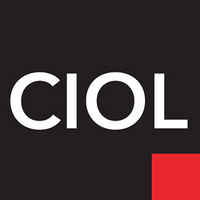Reduce business risk by engaging accredited language professionals
Important recognition has been achieved by ITI and CIOL for the value of Accreditation for language professionals, against the backdrop of ongoing significant and major change in the technological and market context for translators and interpreters.


The Beta version of the UK Government’s new Regulated Professions Register stops short of recognising language professionals as ‘Licenced’ or ‘Certified’ but does place them within the domain of Accredited professionals, which recognises the high levels of qualification and experience ITI and CIOL members have.
What is the value of engaging an accredited professional?
Professional accreditation serves as a marker of quality, expertise, and ethical conduct in the language services industry. It benefits clients by ensuring a higher standard of service and instilling trust in the profession as a whole.
Quality assurance
Accreditation ensures that translators and interpreters meet certain standards of competence and professionalism. It gives clients confidence that the language professionals they are hiring have the necessary skills and knowledge to deliver high-quality work. Accredited professionals have a ‘toolbox’ of skills, expertise and experience at their disposal that can be deployed to ensure that they deliver an effective solution to their client’s needs.
Minimising risk
In some high-specialist industries and business areas, errors in communication or a lack of accuracy can lead to misunderstandings which can be very costly – both financially, but also more critically, in terms of human safety. Employing accredited translators and interpreters with a proven subject specialism reduces the risk of high-stakes errors.
Competence and expertise
Accreditation typically involves rigorous assessment processes. Professionals who obtain accreditation have demonstrated their competence in their field and have proven their ability to handle various linguistic challenges and cultural nuances.
Ethical standards
Accredited professionals agree to abide by a code of conduct. This helps maintain the integrity of the profession and ensures that translators and interpreters conduct themselves ethically and responsibly.
Credibility and trust
Accredited translators and interpreters are more likely to be trusted by clients and employers because their skills and qualifications have been independently verified by a reputable accrediting body.
Continuing professional development
Accredited professionals are encouraged to engage in ongoing education and training, ensuring lifelong learning. Undertaking regular CPD keeps practitioners updated with the latest developments in the field.
The new Register mirrors the EU register which the UK was part of pre-Brexit. Its purpose is to help and inform professionals and the businesses that employ their services. CIOL, ITI and NRPSI have all announced that they have been cited and recognised for their role in the Accreditation of interpreters and translators.
The Register was created by the Department for Business & Trade and was announced publicly in June.

If you need a professional translator or interpreter to support your language requirements, you can search by languages and industry specialisms in the ITI Directory.




